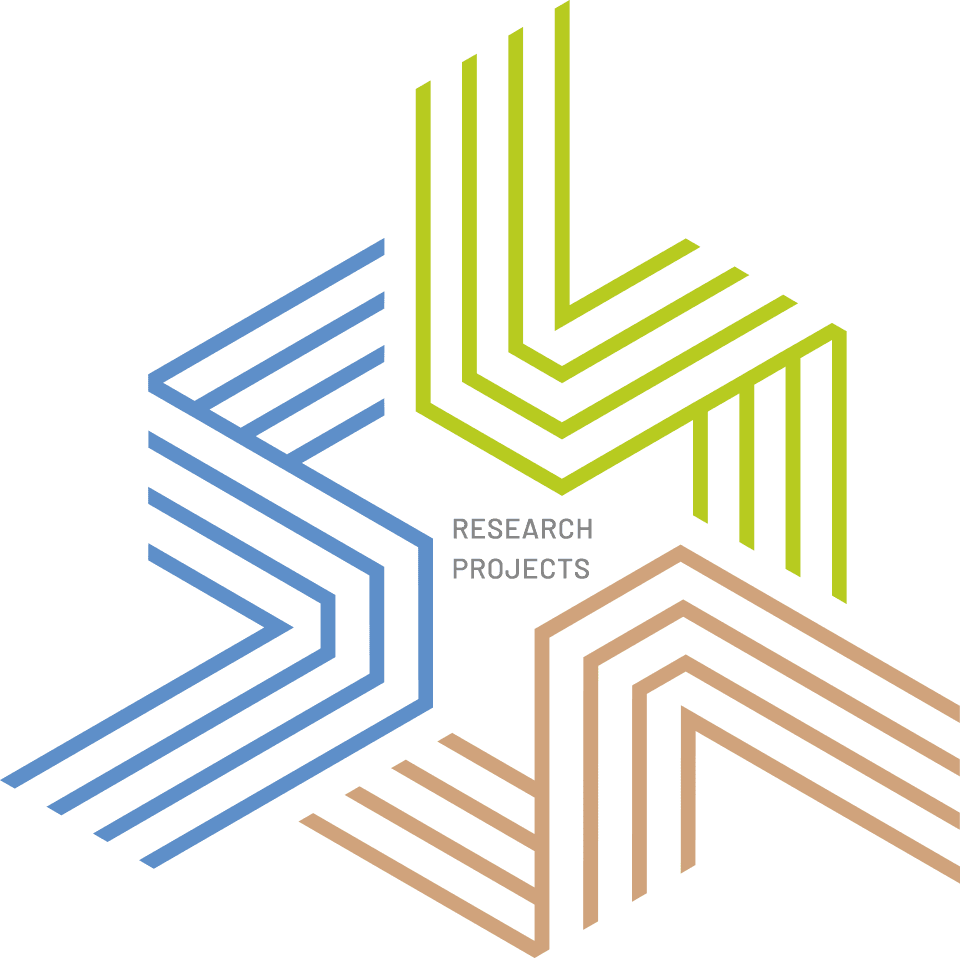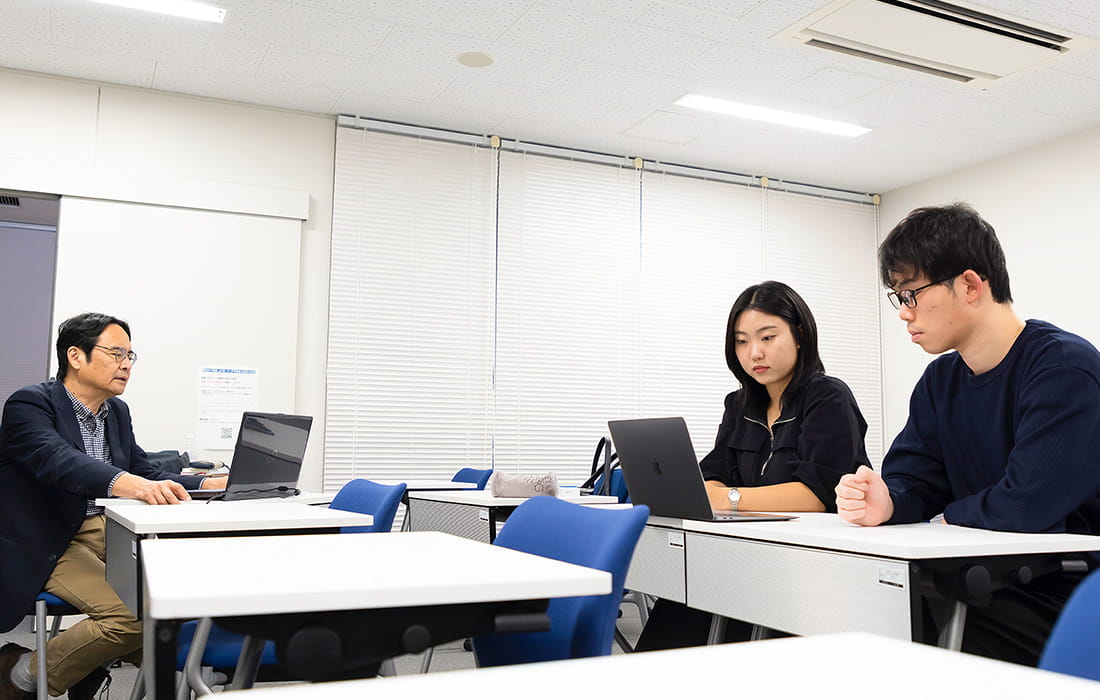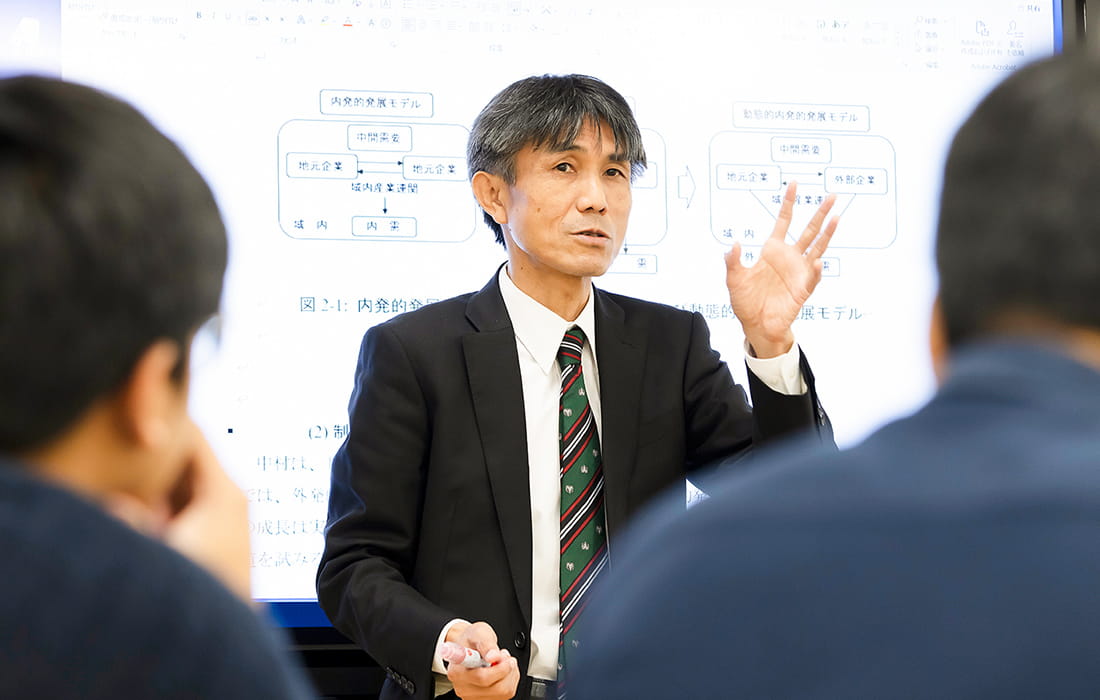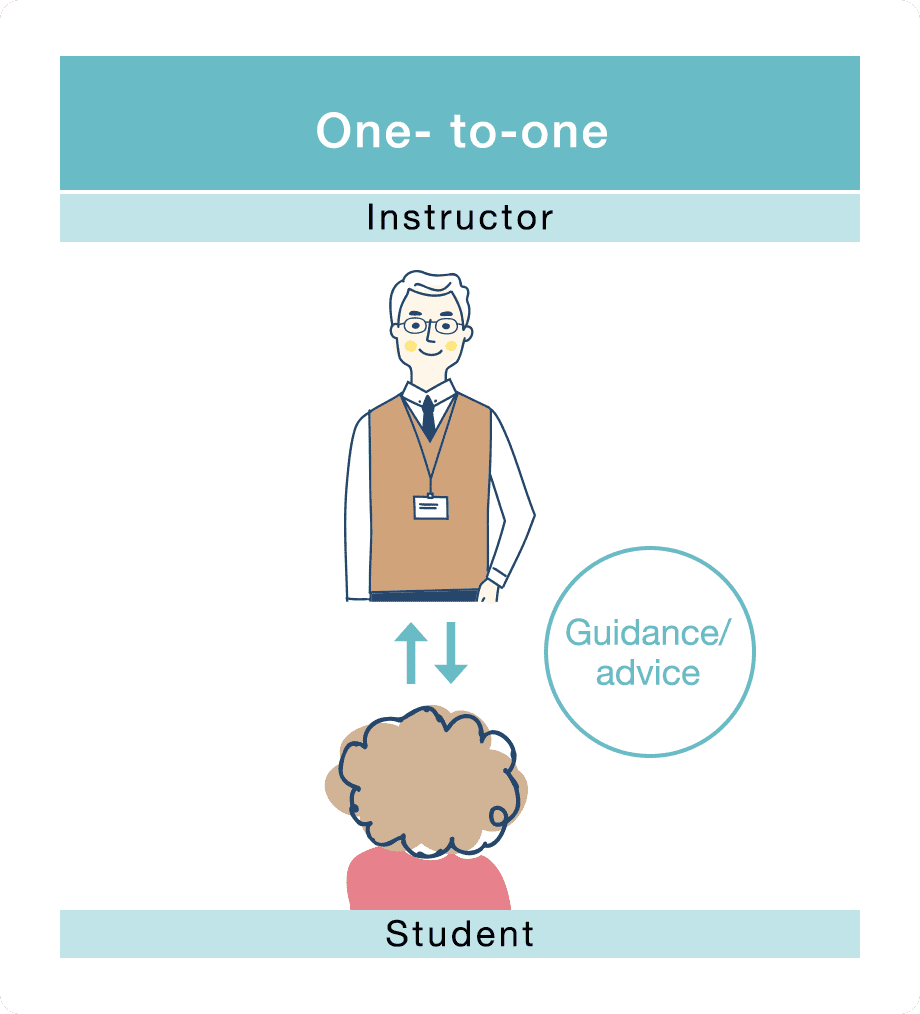Feature
Developing practical policy skills through direct involvement in the real world
Policy science is a new discipline that is both interdisciplinary and practical. A unique feature of the Graduate School of Policy Science’s curriculum is the Research Project, which aims to create an intellectual space for policy design in which faculty members with different areas of expertise and graduate students with diverse research motivations and topics collaborate to solve real-world policy issues, all while constantly traversing the space between the field and basic theory.
Three types of Cluster:
The hallmark of policy science

-

Public Policy Cluster
In this cluster, students analyze the formation, decision-making, and execution processes of policies in the public sphere, including politics, public administration, and civil society, and they conduct research with a view to possibly expanding upon these processes in the future. Given that the contemporary public domain is strongly influenced by global society, students also verify issues from an international perspective.
View the faculty member list -

Environment and Development Cluster
Students conduct theoretical and empirical research on the environment, energy, and cities to promote the development of a sustainable society. While actively integrating the knowledge of the social and natural sciences necessary to advance these interdisciplinary studies, this cluster aims to build practical policy science rooted in field research.
View the faculty member list -

Social Management Cluster
In this cluster, students engage in analysis related to economics, management, welfare, and other areas of economics and society. Students also conduct research on the companies, NPOs, municipalities, and other organizations that play a role in these areas. Students engage in comprehensive research on contemporary economics and society, while keeping in mind the social systems and social networks that generate national and regional policies.
View the faculty member list
Policy Science Research Courses
- Public Policy Courses Courses are arranged so that students will acquire insight into the policy formation process. The policy formation process is one of consensus, and the social rationality of policies and measures is the subject of these courses. Courses on offer focus primarily on political science, public administration, public philosophy, and legal policy studies.
- Environment and Development Courses Courses on offer encompass areas such as the environment, energy, cities, and disaster prevention. These courses focus on environmental science, urban engineering, and planning theory, and while they emphasize mastery of scientific rationality, they are unique in that they are rooted in real-world social phenomena.
- Social Management Courses Courses are offered to ensure that students can analyze the economy, society, and organizations and clarify the interactions thereof. These courses revolve around the fields of economics, business administration, and sociology, and as they master these fields, students tackle various issues facing society by advancing their exploration of economic rationality.
- Common Courses Common Courses consist of those designed to ensure that students acquire the fundamentals of policy science as a synthesis of academic knowledge, and those that instill in them the skills needed regardless of the research area or research topic. Students will acquire the basic theories and basic analytical methods of the new academic discipline of policy science.
Policy issue-driven project-based research supervision framework
The Graduate School of Policy Science employs project-based research supervision. This is a method where cross-disciplinary faculty member joint research teams are organized for each area or theme and graduate students participate in the joint research process of their respective team.
In the Research Project courses, rather than having one faculty supervisor specialize in one area of expertise, we take a team approach to supervision, where multiple faculty members with common interests in the area or theme but different academic backgrounds supervise the research of the graduate students.
 Graduate School of Policy Science supervision framework
Graduate School of Policy Science supervision framework General supervision framework
General supervision framework
